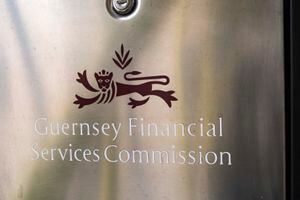GFSC reveals local link to 2015 tax fraud bid
GUERNSEY risked being caught up in a $1.4bn tax fraud which emerged after more than 50 clients suddenly asked to pull money from a local licensed fiduciary firm.

The potential tax evasion focused on clients from Indonesia, who asked Standard Chartered Trust (Guernsey) to move their accounts to Standard Chartered Trust (Singapore) or else terminate them.
The details were set out in a public statement released by the Guernsey Financial Services Commission yesterday, which issued a £140,000 fine in June 2020 to Standard Chartered Trust (Guernsey).
‘Between late October 2015 and early December 2015, the licensee suddenly started to receive instructions from clients to transfer to SCTS or terminate a total of 53 client structures,’ said the statement.
‘These requests amounted to $1.4bn of assets under the licensee’s management and predominantly originated from its clients resident in one country, Indonesia, and represented approximately 40% of the firm’s overall business from Indonesia at that time.’
Standard Chartered Guernsey eventually raised concerns that every transfer or termination represented the real risk of being linked to potential tax evasion, and more than $265m. of the $1.4bn involved in the requests would subsequently be identified as participating in a tax amnesty in Indonesia, the commission said.
The firm also knew employees were suspicious that the requests were being driven by the introduction of an international tax reporting standard, designed to limit foreign clients circumventing paying taxes in their home country.
This standard was due to be introduced in the Bailiwick ahead of being introduced in SCTS’s jurisdiction.
‘However, despite the numerous red flags already raised ... the licensee then engaged in an unbalanced process to expedite the transfers to SCTS,’ said the GFSC.
The regulator was ‘extremely concerned’ the firm had not adequately considered the risk of clients potentially avoiding tax in Indonesia and therefore the funds it controlled represented the proceeds of crime
It also showed a ‘serious lack of prudence and professional skill’ when considering employee concerns, it added.
Other systemic failing were subsequently identified, including the licensee managing $1.1bn of client assets where the source of wealth or source of funds was uncorroborated.
Such was the magnitude of systematic and serious failings that it the firm took more than three years to ‘remediate’ their client base.
Mitigating factors included the company embarking on its own investigation when regulatory breaches were identified with clients transferring to SCTS. Nor was any evidence seen by the commission to indicate the failings were ‘purposeful or malicious’. The licensee also cooperated fully, agreeing to settle at an early stage, which led to a discount in setting the financial penalties and prohibitions.
In May last year, the Royal Court appointed joint liquidators to the licensee to wind up the Guernsey business. It had announced its closure in 2016 as part of a centralisation of business in Singapore.





